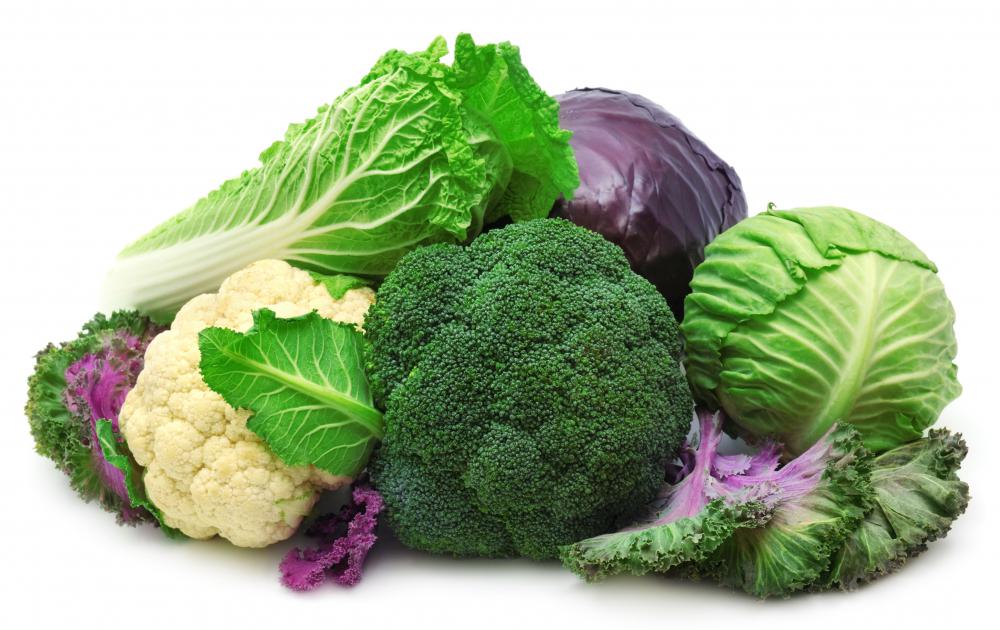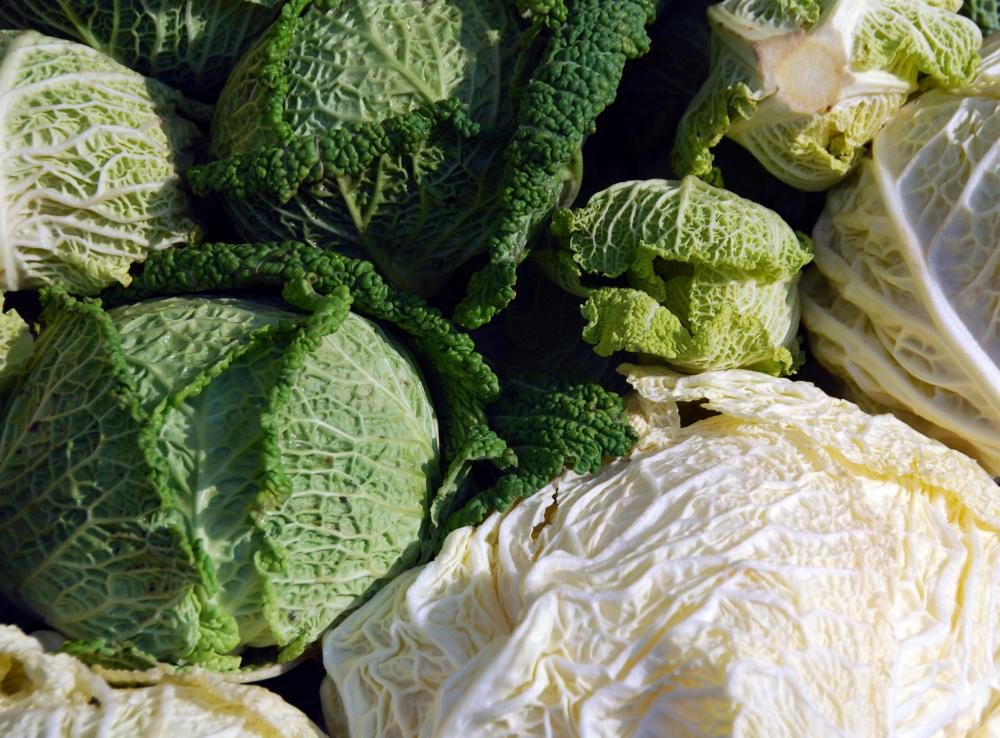At WiseGEEK, we're committed to delivering accurate, trustworthy information. Our expert-authored content is rigorously fact-checked and sourced from credible authorities. Discover how we uphold the highest standards in providing you with reliable knowledge.
What are Some Health Benefits of Cabbage?
Cabbage is a cruciferous vegetable related to kale, collard greens, broccoli and Brussels sprouts. Wonderfully crunchy, it can be used in numerous recipes like coleslaw, or it can be stuffed and baked or added to soups and stews. Incentives to eat cabbage are certainly significant, not just because it tastes good, but because it offers many health benefits.
A cup of cabbage (approximately 150 grams) has only 33 calories. Yet it is packed with vitamins and provides an excellent source of dietary fiber. Some of the health benefits of cabbage are its high levels of vitamins C and K. It’s also a good source of many of the B vitamins, folate, vitamin A, and omega 3 fatty acids. Vitamin C alone makes cabbage rich in antioxidants that may help protect cells and deliver anti-aging benefits.

There are other documented benefits of cabbage. For instance, cabbage may be a helpful food when dealing with peptic ulcers. Red cabbage in particular has been shown in a few studies to have the potential to reduce risk of Alzheimer’s disease. A certain type of protein called amyloid beta may damage brain cells, and some cells in red cabbage, called anthocyanins, may act to prevent this damage.

Several studies have assessed the benefits of cabbage as a cancer preventative, and some of these are very encouraging. Many of these studies look not only at eating cabbage but other cruciferous veggies too. In research done in the Netherlands, people who ate cruciferous vegetables reduced risk of colo-rectal cancers nearly in half. Another study in Texas evaluated how these veggies could reduce bladder risk by nearly 30%.

There are quite a few published articles that suggest lung cancer risk may be lower for people who eat cabbage or cruciferous vegetables of other types. Even smokers may be able to reduce risk of lung cancer, though eating cabbage should not be seen as a way to avoid cancer for smokers. Benefits of cabbage for nonsmokers who are exposed to second hand smoke are high too, and might be significant in lowering risk for lung cancer due to exposure to smoke.

Another of the interesting benefits of cabbage is its potential to help reduce breast cancer incidence. Research into this suggests that adolescent girls who eat 3-5 to servings of cabbage per week may be less likely to develop breast cancer as adults. Adult women shouldn’t give up on eating the vegetable either, as regular consumption of cabbage may help provide continued protection against breast cancer.

Though there are many benefits of cabbage, there are a few people who should avoid it. Its high levels of vitamin K mean that those who take anticoagulants like warfarin (Coumadin®) should not consume cabbage. This may interfere with levels of this medication. Additionally, those with low thyroid hormone levels may want to skip cabbage because it can interfere with the thyroid gland’s ability to produce thyroid hormone.
AS FEATURED ON:
AS FEATURED ON:















Discussion Comments
@extrordinary--Juicing with cabbage is wonderful! It is easy on the budget and is a staple in my juicing. It is best mixed with carrots or apples to blend the flavors.
You should be mindful to not drink more than four ounces at a time, as more can cause slight cramps. The cramping is caused by the sulphur in the cabbage mixing with the bacteria in the intestines. If this does happen, just lay off the cabbage for a few days and things should get back to normal. Enjoy!!
We love cabbage. We eat a lot of it, but I was wondering if anyone has juiced with it,can you tell me anything about how to use it in juicing?
Post your comments